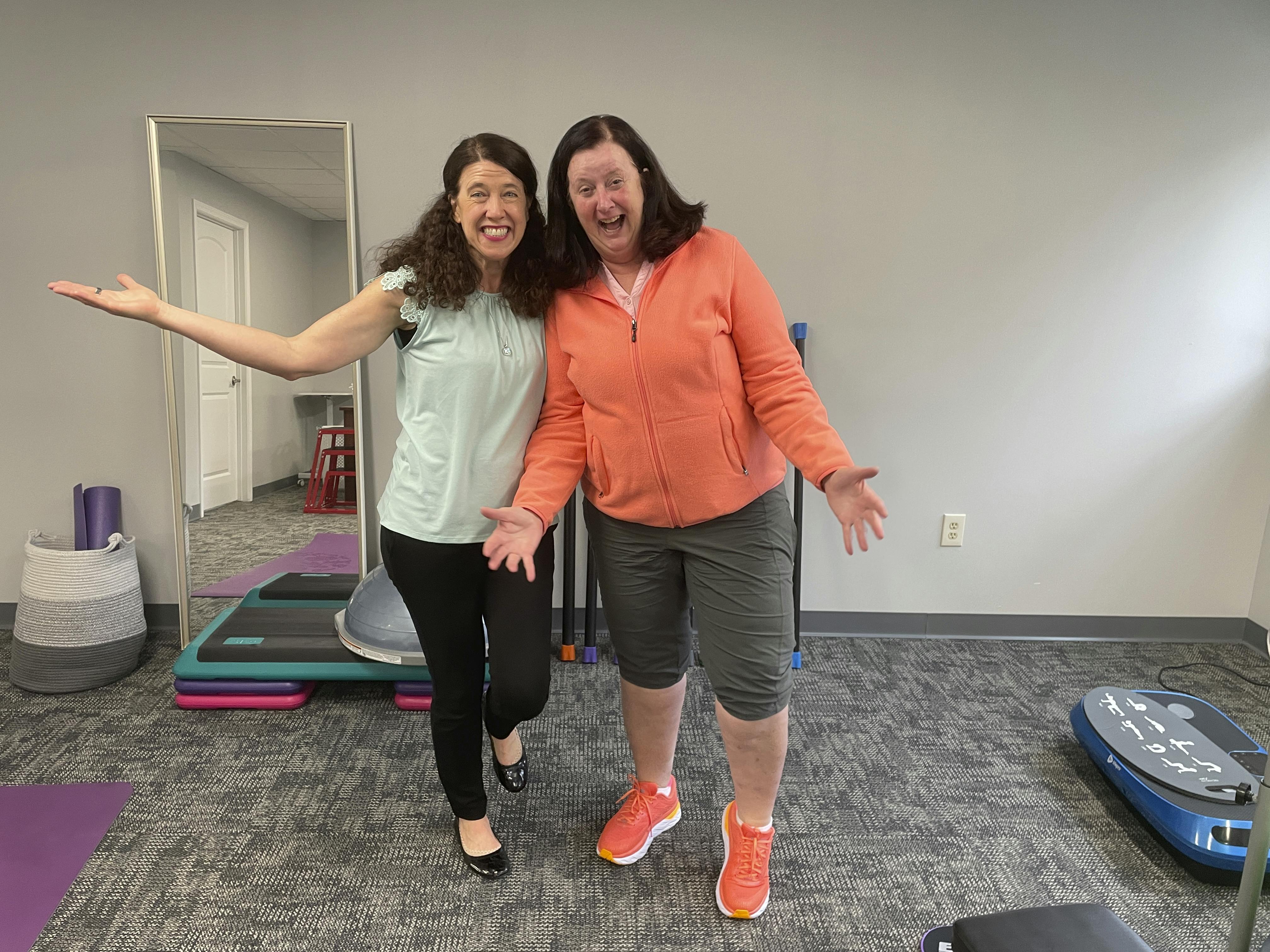

We specialize in evaluating and treating your bladder conditions. The bladder is a magnificent organ that most of us don’t think about until it goes wrong. And when it goes wrong it is a big bother, to put it mildly! Bladder conditions vary and can include pain conditions, incontinence, frequency, urgency, nocturia and others. To learn more about how we can help you, contact us here.
We are here to help you and specialize in treating bladder conditions. We know how to help you recover your bladder control and ease any pain you may experience. Men and women each have special needs when it comes to bladder conditions. We have post graduate education and years of experience specific to male and female bladder rehabilitation. We are your coach and guide, helping to facilitate recovery of your strength, coordination, speed, power and relaxation of the muscular systems to facilitate optimal bladder function and to resolve pain. There’s no need to feel isolated and frustrated. When you choose Purple Mountain Physical Therapy, we offer you compassionate, discreet, expert care that gives you hope and confidence that you can recover from your problem. Some of these conditions are:
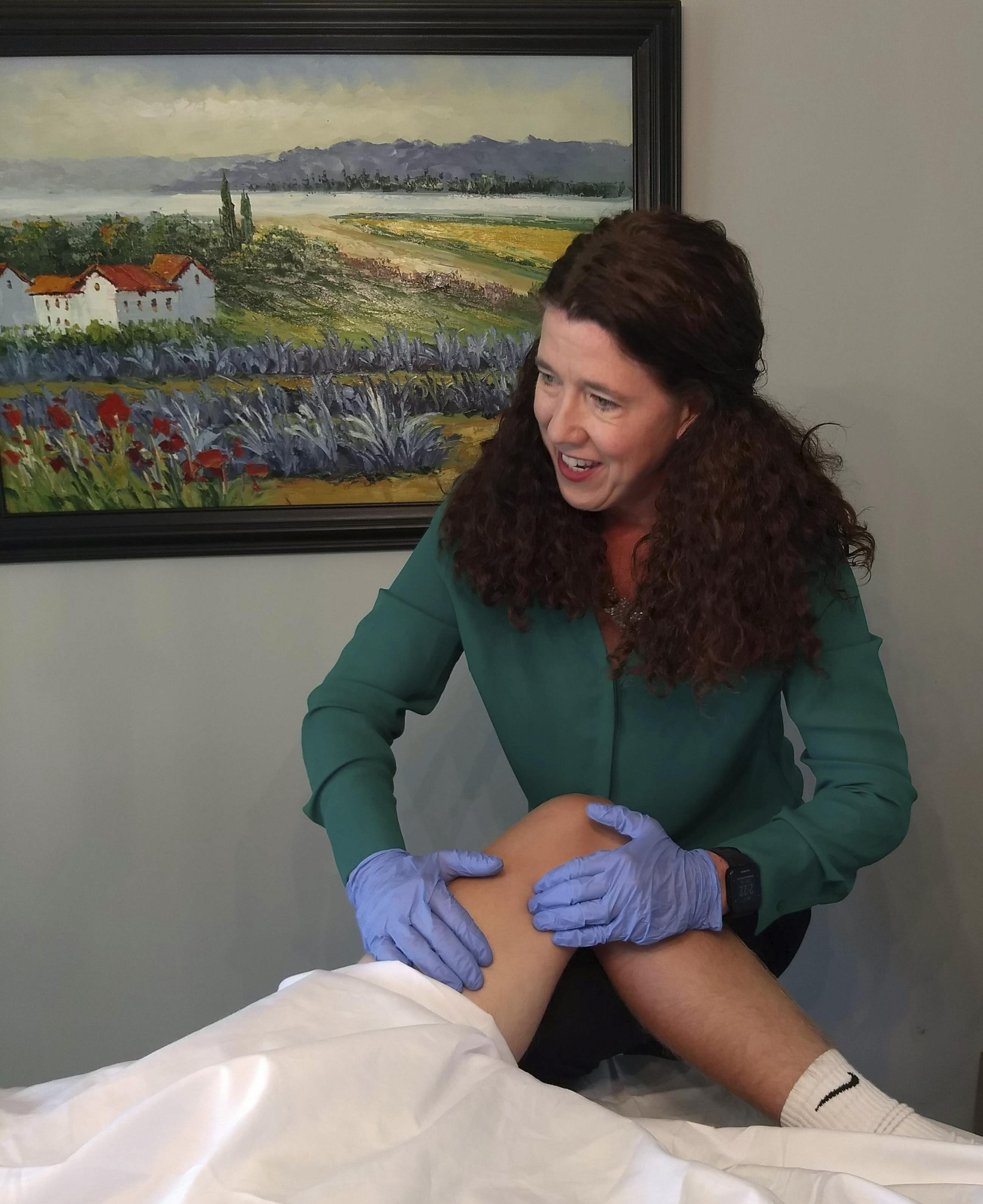
- Urinary frequency and urgency
- Pregnancy related urinary urgency
- Interstitial Cystitis/Bladder pain syndrome
- Stress urinary incontinence
- Pregnancy and post-partum stress urinary incontinence
- Urge urinary incontinence
- Mixed urinary incontinence (stress and urge)
- Insensible urinary incontinence
- Overactive bladder
- Slow urinary stream
- Pelvic organ prolapse related urinary incontinence and dysfunction
- Nocturia
- Incomplete bladder emptying
- Prostate related bladder problems
- Post-Prostatectomy or post-TURP urinary incontinence
- Post-void dribbling
- Neurogenic bladder
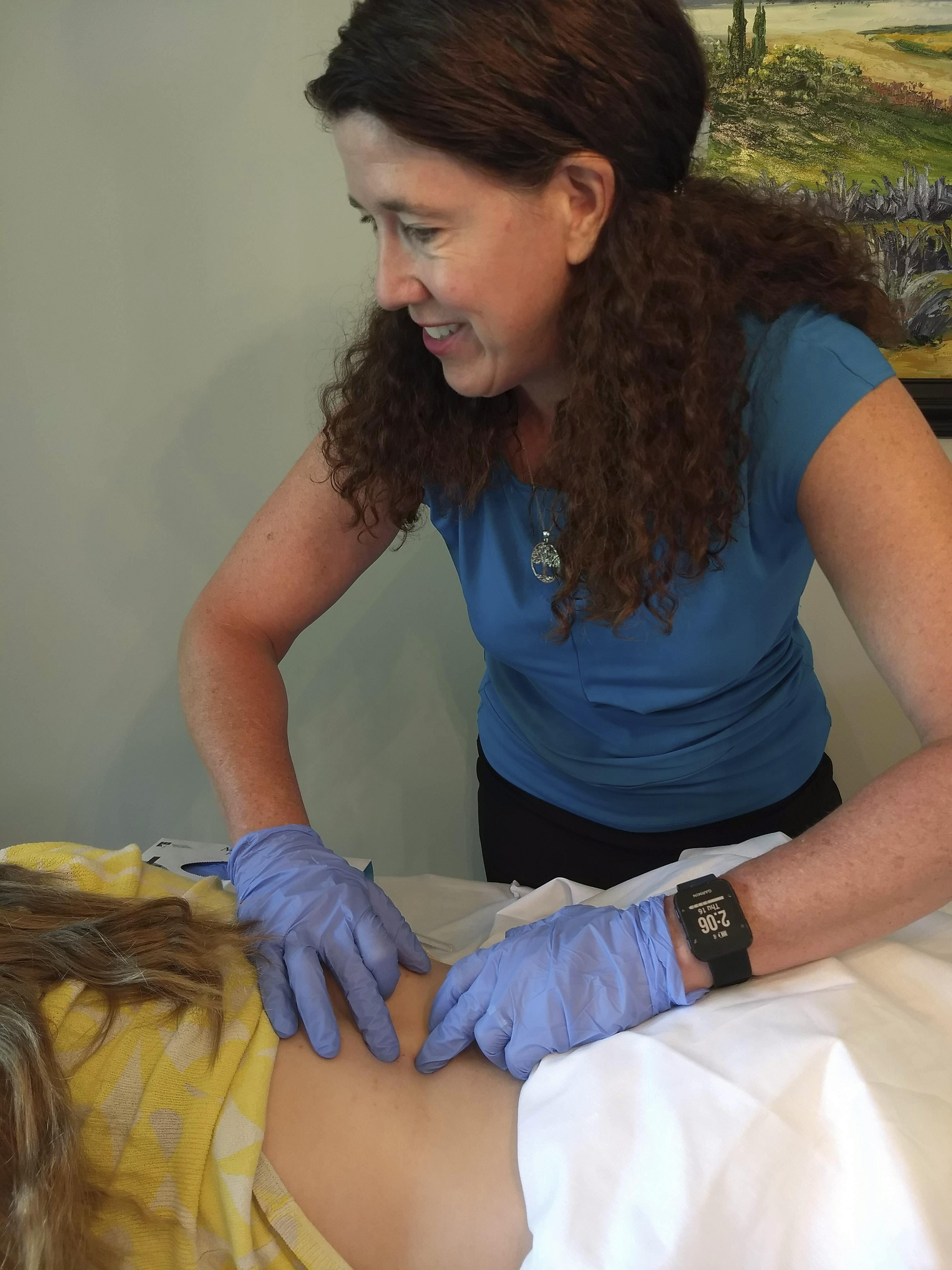
Urinary frequency and urgency: Are you tired of rushing to the bathroom and needing to go all the time? Have you tried medications for this, but don’t like the side effects or the idea of being on a medication the rest of your life? We are here to help you and have successfully helped other people wean off of their bladder medications. Pelvic health physical therapy for urinary urgency and frequency can be very effective. We are experts in treating urgency and frequency in men and women and will identify a constellation of myofascial issues contributing to this problem. You can expect an evaluation to examine your abdomen, low back, hips, thighs and pelvis to determine where there are restrictions that might be contributing to your bladder being overactive. We also offer specialized biofeedback training for heart rate variability coherence to balance your autonomic nervous system, which plays an important role in bladder function. Contact us here to learn more about how we can help you.
Pregnancy related Urinary Urgency: Sometimes when you are pregnant or post-partum your bladder can become overactive, causing you to need to rush to the bathroom. We can evaluate and treat you to help restore your bladder’s ability to be calm down. Yes, your body is changing and your bladder is undergoing some changes to accommodate your growing baby. But, if you are experiencing unusual urinary urgency, we are here to help you so you don’t live in fear of losing bladder control.
Overactive Bladder (OAB): Sometimes a bladder seems to have a mind of its own and a person experiences bladder spasm and the need to urinate more often than normal. An overactive bladder has difficulty relaxing and filling up with urine and storing the urine until the appropriate time to urinate. There is a better way to live and we offer effective physical therapy treatments to calm down this type of bladder! Yes, there is hope and this can get better! Wouldn’t it be nice to take a road trip and not have to stop at every opportunity? We are here to help you! We have heard from many of our patients that they have their life back following treatment. We’ve worked with men and women with OAB. With the expert guidance of your pelvic health physical therapist at Purple Mountain Physical Therapy we will evaluate you and determine what is going on so we can develop a customized treatment approach for you.

Urge Urinary incontinence: On the sequelae of having an overactive bladder and urinary urgency and frequency, your problem might progress to include the urge urinary incontinence. Urge urinary incontinence occurs when your bladder muscle contracts strongly and your pelvic floor muscles cannot overcome this contraction, therefore urine unexpectedly comes out. The volume of urine lost during urge urinary incontinence varies from a few small drops to the entire contents of the bladder. We are here to help you recover your bladder control. Under the evaluation and treatment of the experienced pelvic health physical therapists at Purple Mountain Physical Therapy you can gain control over this problem. We will evaluate and treat not only your pelvic floor, but all areas related to bladder control, including your breathing, core muscles, low back, hip girdles and abdominal wall. We will teach you effective strategies to calm down your bladder and provide you with exercises that assist your recovery. We provide expert, hands-on treatment to treat the musculoskeletal contributions to your urge urinary incontinence. We also offer a specialized biofeedback heart rate variability coherence training to help you learn to tap into the wisdom and balance of your autonomic nervous system so you can gain some skills at calming your bladder’s overactivity.
Stress urinary incontinence: Stress incontinence is the involuntary loss of urine related to activities that increase intra-abdominal pressure such as coughing, sneezing or running. We have helped both men and women overcome stress urinary incontinence. The female anatomy renders it more vulnerable to experience stress urinary incontinence. In men stress incontinence may occur following prostate surgery such as after BPH (benign prostatic hyperplasia) TURP surgery or post-prostatectomy. The male pelvic floor and urinary control system has its own characteristics that need focused, skilled rehabilitation to recover continence. We offer our advanced skills to evaluate you and develop a treatment program to optimize your bladder control. Kegels alone will not solve stress urinary incontinence. If you are serious about getting rid of your stress incontinence, we, at Purple Mountain PT can teach you the proper, comprehensive way to rehabilitate your entire core, including your pelvic floor, to facilitate urinary control and optimal firing patterns. Your treatment will be specific to your body so you get the results your need. Contact us here to get started!

Pregnancy and Postpartum related Stress Urinary Incontinence: The pregnant and postpartum woman is in a special time of her life. Urinary incontinence should not be a part of your pregnancy and postpartum story. Stress urinary incontinence related to pregnancy and the postpartum period is a sign of pelvic floor dysfunction and improper control of the intra-abdominal pressure. We offer proven treatment to help you to restore your pelvic floor and urinary continence. It is never normal to be leaking urine and starting treatment right away is recommended. We have experience working with many pregnant and postpartum women and will create a customized treatment program to help you get back to walking, running, and exercise without incontinence. Recovery from stress incontinence, especially when post-partum, is more complex than simply doing Kegels because maintaining continence is a coordination of all of your core muscles managing your intra-abdominal pressure. We will evaluate your breathing, abdominal wall, back muscles, hip girdles and pelvic floor and we will teach you how to coordinate muscular control to facilitate the return of continence. This includes helping you to learn how to properly engage your pelvic floor, addressing speed, power, pre-activation, coordination, and release to optimize this muscle group’s ability to coordinate with the rest of your core muscles.
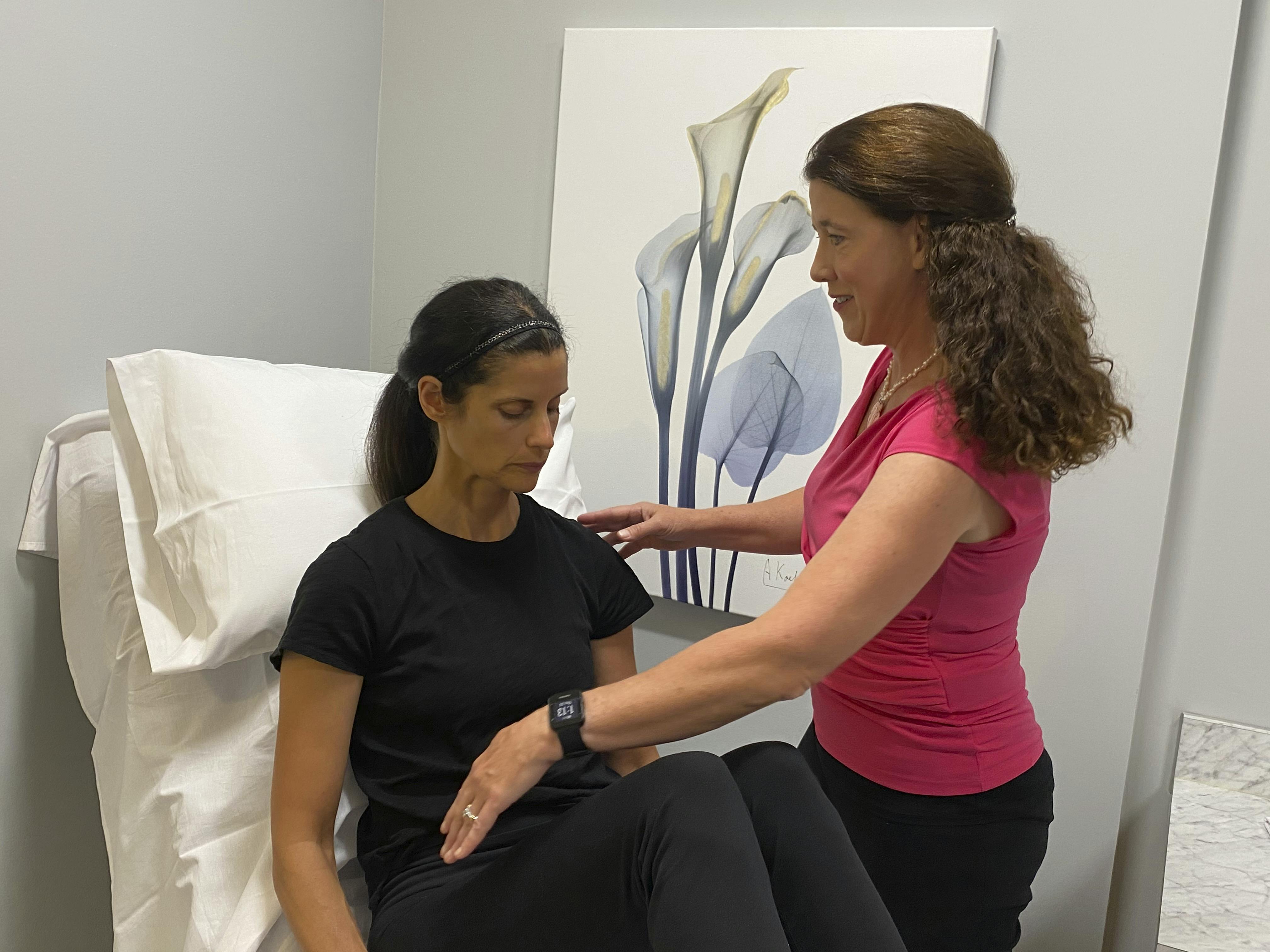
Interstitial Cystitis/Bladder Pain Syndrome (BPS):
You have finally found the right place to treat your interstitial cystitis and bladder pain syndrome! Yes, we’ve treated men and women who have interstitial cystitis/bladder pain syndrome. Yes, you can feel better. Yes, there is hope. We are expert pelvic health physical therapists and we have spent our career helping people like you, studying pelvic pain and bladder conditions, attending professional conferences and even teaching other professionals advanced treatment techniques. We will evaluate you and, together, we will discover what is going on, what skilled treatment you require and what you can do to help yourself. We will design a custom treatment program for your interstitial cystitis/bladder pain syndrome, based in research backed treatments and rooted in over 20 years of experience working with individuals like you. In the skilled hands of your physical therapist you will find a path forward that actually works. Our treatment addresses your pain and bladder function so you feel better. Our evaluation usually reveals numerous things contributing to your pain and bladder dysfunction such as tissues that are not optimally healthy and that lack optimal blood flow, restrictions in connective tissue, trigger points in muscles, pelvic floor dysfunction and altered breathing patterns. And, to be clear, our treatment will address all areas of your core and thighs and will include pain neuroscience education. We also offer heart rate variability coherence training using biofeedback to teach you a skill to help your condition. We expect that when you come to Purple Mountain Physical Therapy for your interstitial cystitis/Bladder pain syndrome you will start to see a light at the end of the tunnel, a pathway forward to a full and complete life where your bladder and pain do not govern your every thought. Treatment for IC & BPS is best done with multidisciplinary care and we are happy to work with your other providers to optimize your outcome.
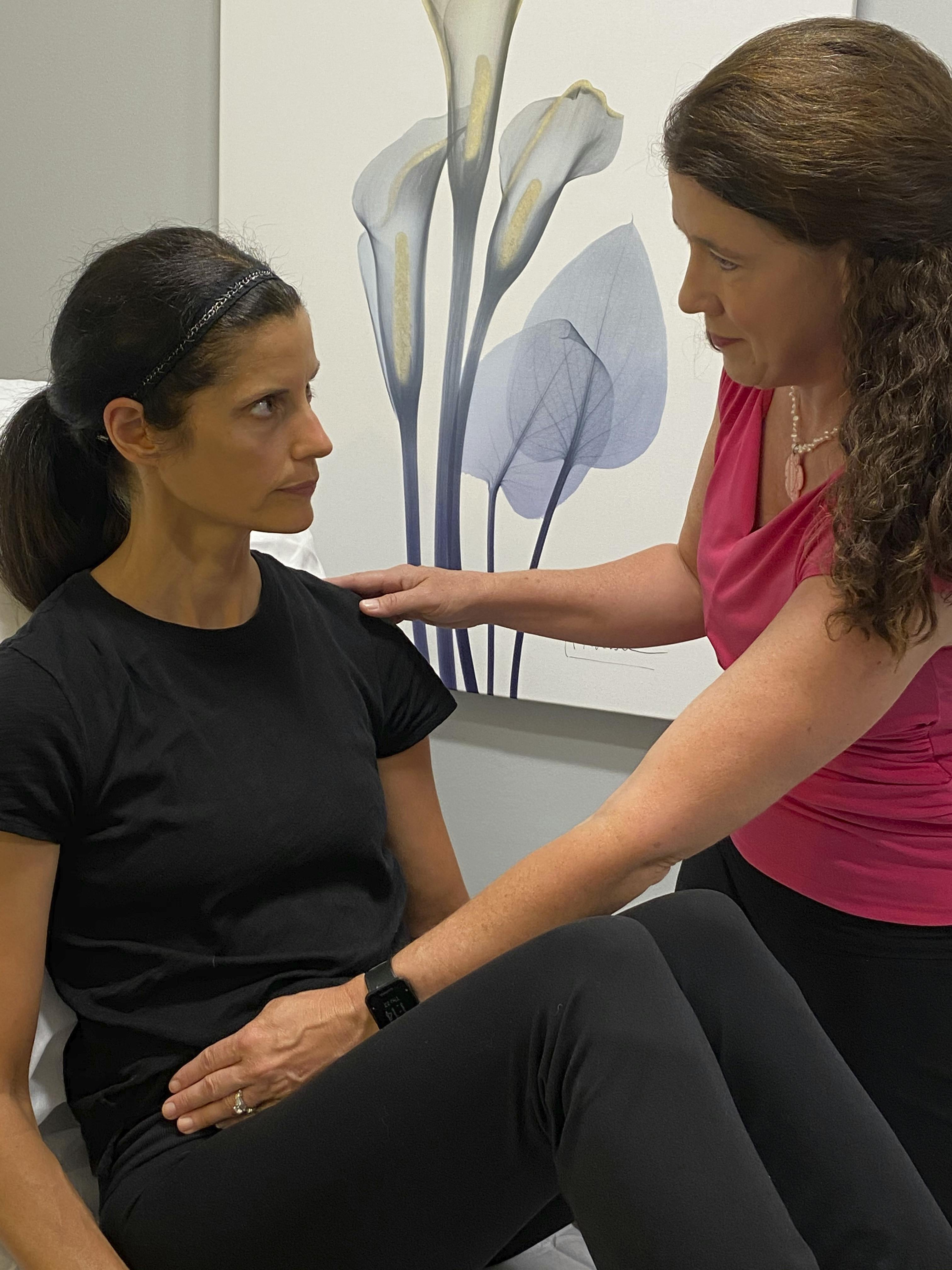
Incomplete bladder emptying and slow urinary stream: Sometimes a man or woman may experience difficulty fully emptying their bladder. We can help identify and treat underlying myofascial factors and habits contributing to your incomplete bladder emptying. We recognize there may be underlying conditions, such as an enlarged prostate or a neurologic condition that may be contributing to your difficulty eliminating your urine, but if you also have pelvic floor dysfunction or compromised urination habits, we can help you. In women who have pelvic organ prolapse we will work with you to optimize your urinary function to allow for easier urinating. Some people we work with have come to us using a catheter to empty their bladder. These individuals are measuring the volume of urine expelled via catheter and have found objective improvements through our skilled physical therapy.
Prostate related bladder problems: Bladder conditions for men can sometimes be a complex problem, exacerbated by an enlarged prostate that disrupts your urinary flow and prevents you from emptying your bladder fully. Other times the prostate size is fine and not a contributor to the issue. In either case, physical therapy can help. If you are experiencing changes to your urinary system, whether it be slow stream, urinary frequency, incomplete emptying of the bladder, nocturia, urinary urgency or other problems, we will evaluate you to determine whether physical therapy can help you.
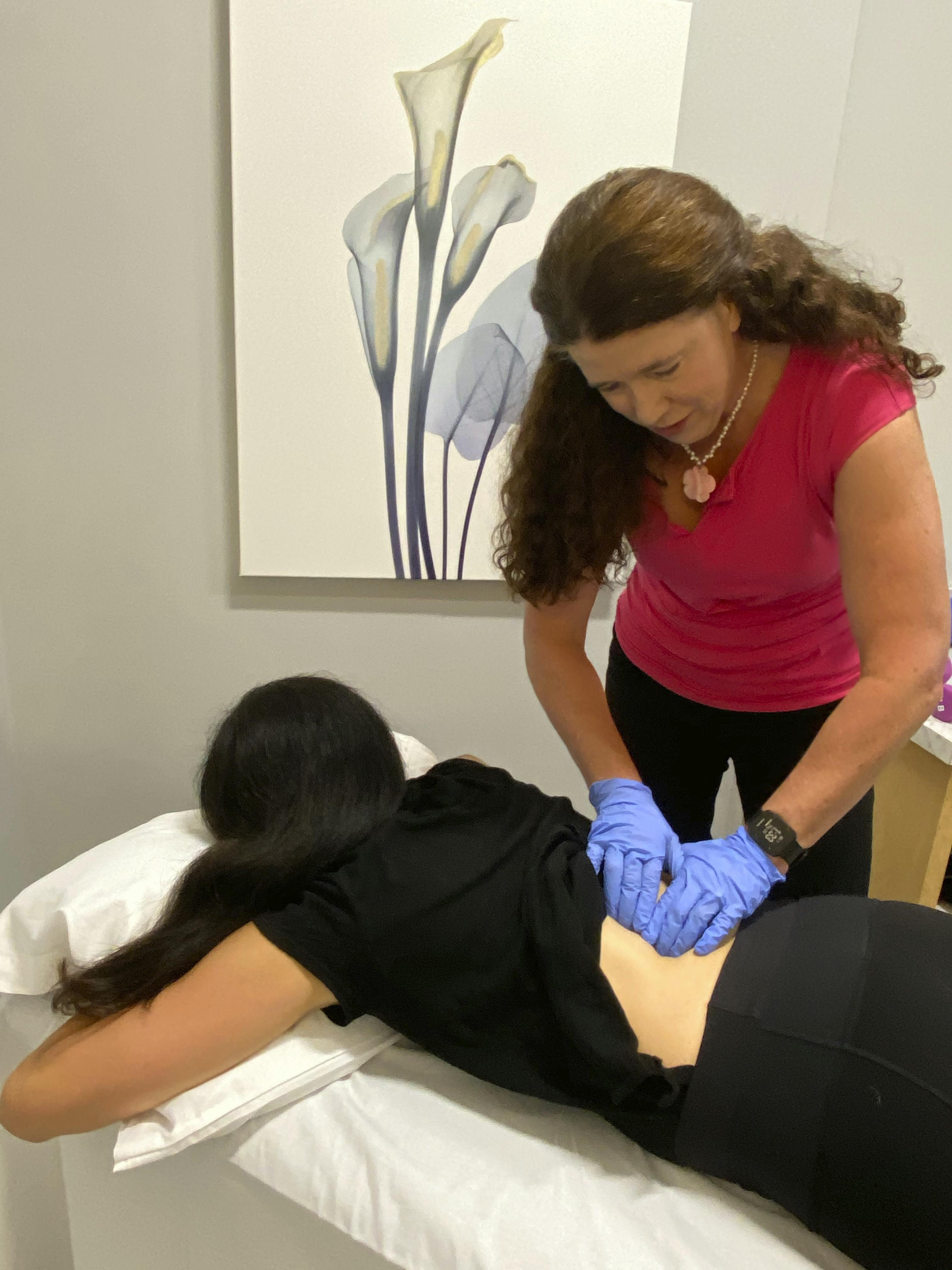
Insensible incontinence: This incontinence occurs without you realizing it is happening. Incontinence of this manner can be particularly frustrating and can occur in men and women. We often see men following surgery for the prostate who report insensible incontinence occurring readily all day. We’ve also worked with women who report insensible incontinence and complete frustration that it occurs and they seem to have no control over it. We are here to help you. We can evaluate and treat you to provide a rehabilitation program that optimizes your bladder control and awareness of bladder control. In addition to providing you manual therapy, neuromuscular coordination exercises and behavioral recommendations, we will teach you strategies at home to improve this problem.
Post Void dribbling: Do you finish urinating and then find yourself experiencing dribbles of urine afterwards? This is frustrating and something that we can address. Our evaluation will look for things that we can address to improve this problem. Often, we find pelvic floor dysfunction. In some women a pelvic organ prolapse is contributing and we can advise you how to better manage this. We have experience working with women and men just like you and helping them to stop this bothersome problem.
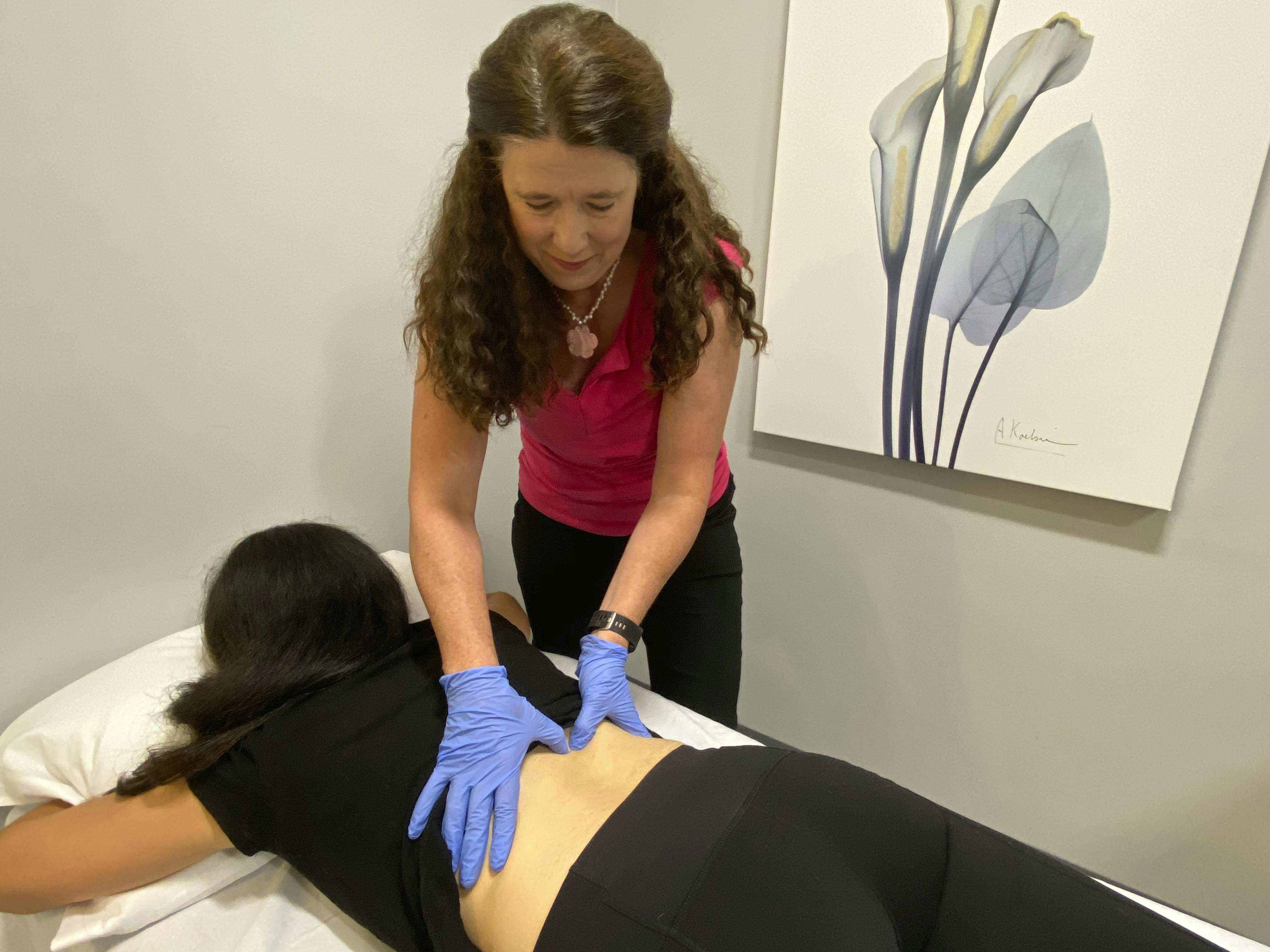
Nocturia (getting up to urinate during the night): Nocturia is a common problem that pelvic health physical therapy can improve. We typically find that with nocturia there are pelvic floor dysfunction and myofascial restrictions in areas related to the bladder. Our comprehensive evaluation will examine your bladder control muscles as well as your low back, hips, pelvis, abdomen and thighs. It is here that we find restrictions that can benefit from treatment and, in turn, the bladder can calm down and allow you to sleep without needing to urinate.
Slow urinary stream: A slow urine stream, when caused by pelvic floor dysfunction, responds quite well to skilled PT. Your underlying pelvic floor dysfunction might be making it hard for your urine to flow. You shouldn’t have to push your urine out. We can help your bladder and pelvic floor muscles to function more normally so you can urinate without hesitation in your stream.
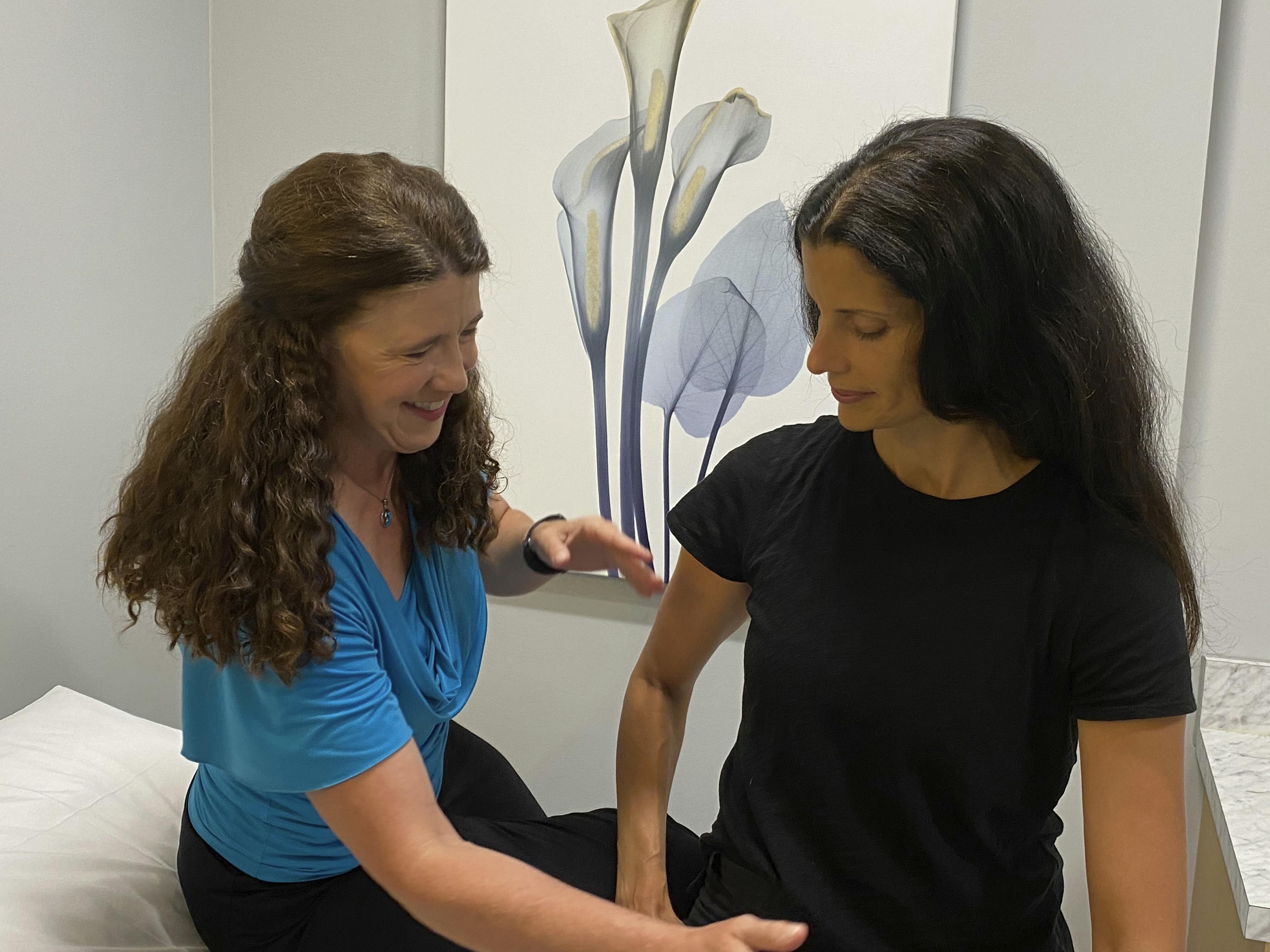
Neurogenic bladder: Individuals with neurologic conditions may experience challenges with bladder and bowel control including urinary urgency, incontinence, inability to start the flow of urine and difficulty emptying their bladder. Some men may require a catheter to empty their bladder. There is research backed evidence that physical therapy can help your neurogenic bladder. We have worked with individuals with numerous neurologic conditions, such as following a stroke (CVA), multiple sclerosis, small fiber peripheral neuropathy and spinal cord injury. This can be a challenging condition and with the right evaluation and treatment you might find your body responds and you can improve your bladder control. As always, interdisciplinary care can provide you the best results and we are happy to communicate with your physician providers.
